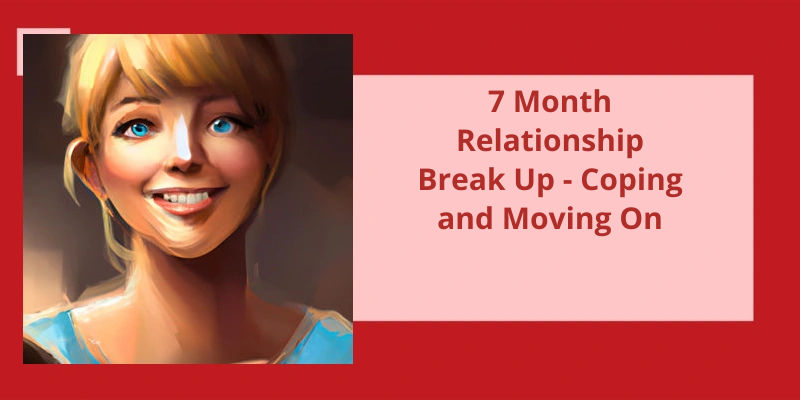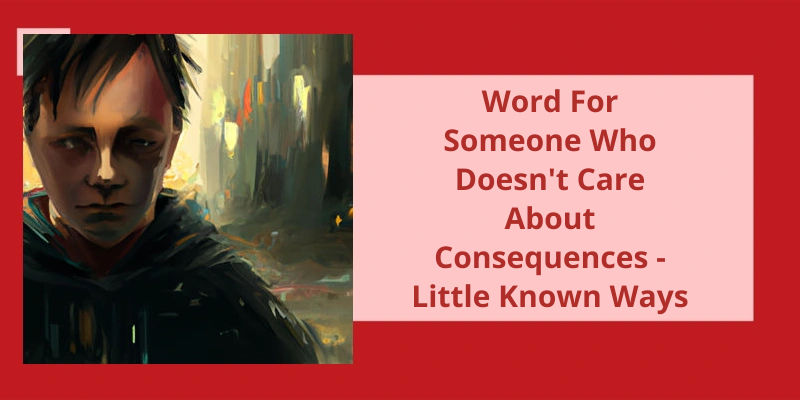Breaking up with a partner after a 7-month relationship can be a challenging and emotional experience. It's a time of adjustment and can come as a shock to the system, especially if the relationship was seemingly solid. Whether you were the one to initiate the break-up or not, the aftermath can be difficult to navigate. Many emotions can arise, such as sadness, anger, regret, and confusion, making it hard to make sense of what went wrong. Each person's experience is unique, and there’s no right or wrong way to cope with a break-up. However, there are ways to take care of yourself during this time and move forward with healing and growth.
How Long Is Too Long to Break Up?
Experts recommend a break, rather than a break up, for relationships that may be going through a rough patch. However, these breaks should be taken with caution and both parties should be clear about what they want to accomplish during this time. Taking a break for too long may make it difficult for couples to come back together, as they may have grown too far apart during this time.
Another factor to consider is the reason for the break. However, if the break is simply to take time to reflect on the relationship, a shorter break may suffice.
It’s important for both parties to communicate their intentions during the break, as well as establish clear boundaries. If both parties arent clear on what the break entails, it can lead to confusion and hurt feelings.
In some cases, a break up may be necessary rather than a break. If the relationship has been toxic or one partner has been emotionally or physically abusive, it’s important to end the relationship and move on. Staying in a toxic relationship for too long can cause more harm than good.
It’s important for both parties to communicate openly and honestly about their needs and intentions. Whether a break or a break up, it’s important for individuals to prioritize their own mental health and well-being.
As relationship milestones go, the six-month mark is a significant one. For many couples, this is a point where the commitment level escalates and the relationship becomes more serious. It’s a time where you can reflect on your feelings and determine if this is a relationship you want to continue investing in or if it’s time to move on.
Is 6 Months in a Relationship a Big Deal?
During this time, you and your partner have likely gone through many different experiences together, from the exciting and joyful moments to the more challenging and difficult times. You’ve also had the opportunity to learn more about each others personalities, values, and goals in life. All these factors play a crucial role in determining whether or not a relationship will be successful in the long run.
Moreover, being together for six months allows you to establish a certain level of trust and intimacy with your partner. You’ve likely shared secrets, personal stories, and vulnerabilities with each other, which builds a deeper emotional connection between you. This connection is essential in ensuring that your relationship continues to grow and flourish.
It’s a time for reflection, introspection, and evaluation of your relationships progress. It’s also an opportunity to strengthen your bond, build confidence and trust, and create a foundation for a healthy and successful relationship in the future.
Signs That Your Relationship Is Progressing Well After 6 Months
- You both communicate effectively and openly
- You spend quality time together
- You’ve developed trust and honesty with each other
- You’re comfortable being yourself around each other
- You’ve met each other’s friends and family
- You’ve made future plans together
- You’ve overcome challenges and conflicts together
- You show signs of physical and emotional intimacy
- You feel supported and encouraged by each other
Many couples may find themselves facing a phase in their relationship where they feel unfulfilled or disconnected from their partner. This period is often referred to as the “7-year curse,” also known as the “7-Year Itch.” Although it isn’t a medically recognized concept, many people believe that relationships tend to enter a challenging phase after about seven years. In this article, we will explore what the 7-year curse relationship involves and what you can do to prevent your relationship from falling apart at this crucial period.
What Is the 7-Year Curse Relationship?
This lack of communication can often lead to feelings of frustration, disconnection, and loneliness that can cause one or both partners to feel trapped or stuck in the relationship. Additionally, feelings of resentment and unresolved conflict can also contribute to the 7-Year Itch and ultimately lead to the breakdown of the relationship.
Over time, partners can become complacent in their routine and start taking each other for granted. As a result, they may stop putting effort into the relationship, become less affectionate, or even start seeing other people.
Furthermore, financial stress and changes in life circumstances can also cause the 7-Year Itch. Whether it’s due to loss of a job, a move to a new city, or starting a family, major life changes can put significant strain on a relationship and cause the partners to feel restless or unfulfilled. Additionally, the added pressures of parenthood or caring for aging parents can also exacerbate the 7-Year Itch.
Whether it’s through regular communication, seeking counseling, or making a conscious effort to spice things up, there are many ways couples can overcome the 7-Year Itch and continue to enjoy a fulfilling and long-lasting relationship.
Managing Conflicts in the Relationship to Prevent the 7-Year Curse.
The 7-Year Curse refers to the common phenomenon where relationships tend to end after around seven years. Managing conflicts in the relationship is a crucial step in preventing the curse from happening. By addressing and resolving issues early on, partners can maintain a healthy and fulfilling relationship for years to come. This includes effective communication, empathy, compromise, and seeking professional help when needed. By prioritizing conflict management, couples can avoid the negative pattern of the 7-Year Curse.
It’s no secret that dating can be difficult, and it can be especially hard to figure out where a relationship is going in it’s early stages. According to research by dating app Inner Circle, many couples struggle with this issue. Specifically, a majority of daters reported having ended a relationship after three months, often due to a difference in how quickly each partner was ready to take things to the next level. Let’s take a closer look at this phenomenon and what it can tell us about dating today.
Do Most Couples Break Up After 3 Months?
It’s important to note that the three month mark isn’t a magic number that predicts the end of a relationship. While many couples do break up around this time, there are also plenty of couples who stay together and continue to build a strong, long-term bond.
One of the factors that can contribute to a breakup after three months is the honeymoon phase. In the early stages of a relationship, both partners may be experiencing intense feelings of infatuation and excitement. However, as the relationship progresses and real life sets in, these feelings can sometimes fade or become replaced by other, less intense emotions. This can leave one or both partners feeling unsatisfied or disillusioned, leading to a breakup.
This can come in the form of disclosing past traumas or sharing personal beliefs and values. If these revelations are met with disapproval or rejection, it can create tension and ultimately lead to a breakup.
It’s also possible that couples may simply realize that they aren’t as compatible as they initially thought. Whether it’s due to differences in lifestyle, personality, or interests, sometimes two people just arent a good match for each other. This can become apparent after the initial excitement of the relationship wears off and the couple settles into a more routine lifestyle.
Ultimately, there’s no single answer to whether or not most couples break up after three months. Every relationship is unique and will have it’s own set of challenges and obstacles to overcome. However, by communicating openly and honestly with each other, respecting each others needs and boundaries, and working to build a strong foundation of trust and respect, couples can increase their chances of staying together and experiencing the many joys that come with a long-term relationship.
It’s no secret that relationships take work, but what happens when two people can’t seem to make it past the two year mark? According to research, this tends to be the most common time for couples to call it quits. Once you’ve been dating for this amount of time, you’ve likely been through a lot with your partner and have seen both their highs and lows. But what exactly causes couples to break up at this point in their relationship? Let’s take a closer look.
How Many Months Into Dating Do Most Couples Break Up?
Youve met their family, their friends, and have established a comfortable routine together. However, after the initial honeymoon phase wears off, some couples may come to the realization that they aren’t truly compatible. This can happen at any time in a relationship, but the two-year mark seems to be a consistent predictor for many couples.
It’s important to note that every relationship is unique and there are no strict guidelines for when a couple should break up. Some couples may break up after only a few months, while others may stay together for decades. It all depends on the individuals involved and their specific circumstances.
Certain factors may contribute to a couples decision to break up at the two-year mark. For example, some couples may begin to feel stagnant or bored with their relationship, especially if theyve settled into a routine and aren’t making an effort to keep things fresh and exciting. Additionally, couples may start to notice flaws in each other that they initially overlooked during the early stages of their relationship.
Are they ready to take the next step and commit to each other for the long haul, or are they content with simply dating casually?
The Impact of External Factors Such as Work and Stress on a Relationship.
External factors like work and stress can have a significant impact on the dynamics and quality of a relationship. These factors can often cause tension and strain in a relationship which can affect communication, emotional connection, and overall satisfaction. It’s crucial to be aware of these external factors and work together as a team to find ways to manage them effectively to maintain a healthy and happy relationship.
Source: Why do most relationships breakup happen between 3…
As relationships progress, there are different phases that couples go through. One of these phases is the 7 month relationship stage. It’s a critical period where you start to get to know each other on a deeper level and may face some challenges along the way. In this article, we will discuss what this stage entails and provide tips on how to navigate it.
What Is the 7 Month Relationship Stage?
The 7-month relationship stage is a critical phase in any romantic relationship. It’s a time when couples have gotten past the initial excitement and novelty of the early stages of their relationship and are now working towards building a deeper emotional bond. During this period, couples usually become more committed and start to think more seriously about their future together.
Couples at this stage begin to share more intimate details about their lives, express vulnerability, and share deeper emotions. As they grow closer, partners become more attuned to each others needs and start to anticipate each others wants and desires.
They begin to collaborate more on joint tasks and start to build a shared vision for their future together. This sense of teamwork and collaboration can foster a deep sense of trust and respect between partners, which is essential for a successful and fulfilling long-term relationship.
This may involve making major decisions together, such as moving in together, getting engaged, or planning for a future together. While this can be a daunting time, it can also be incredibly rewarding, as couples work together to build a life filled with love, support, and joy.
Conclusion
It's essential to remember that despite the difficulties, it's possible to grow and learn from the experience. Taking some time to process your feelings and reflect on what went wrong is critical to help determine what you want for your future. It's also important to know that healing takes time, and everyone moves through it differently. The most significant thing is to be kind to yourself during the process and seek support from your friends, family, or even a therapist if you need it. Remember, breakups are never easy, but they can ultimately lead to a newfound sense of self-awareness, self-care, and personal growth. So don't give up hope; you never know what new and exciting adventures lie ahead.






